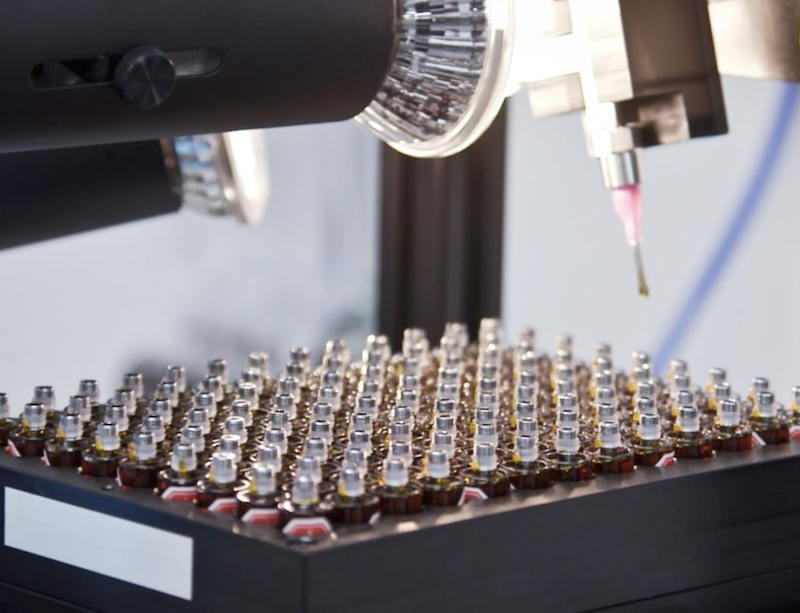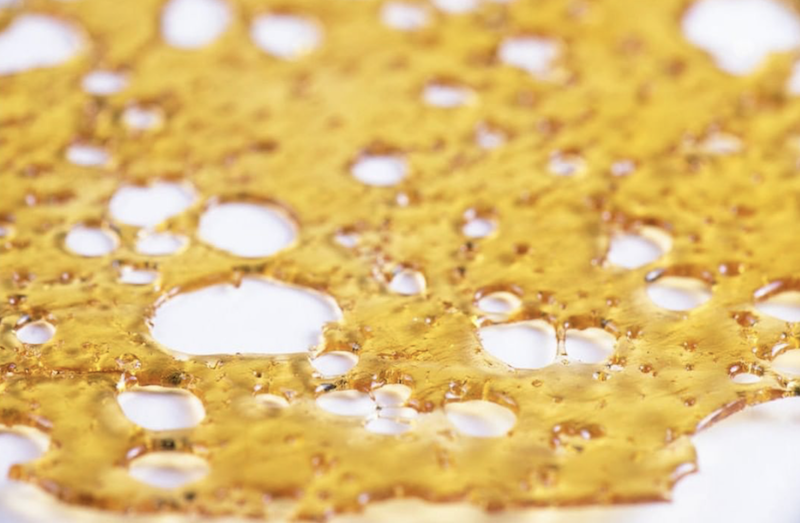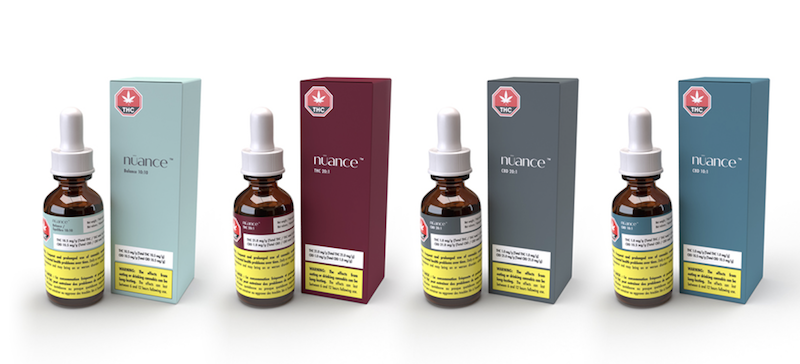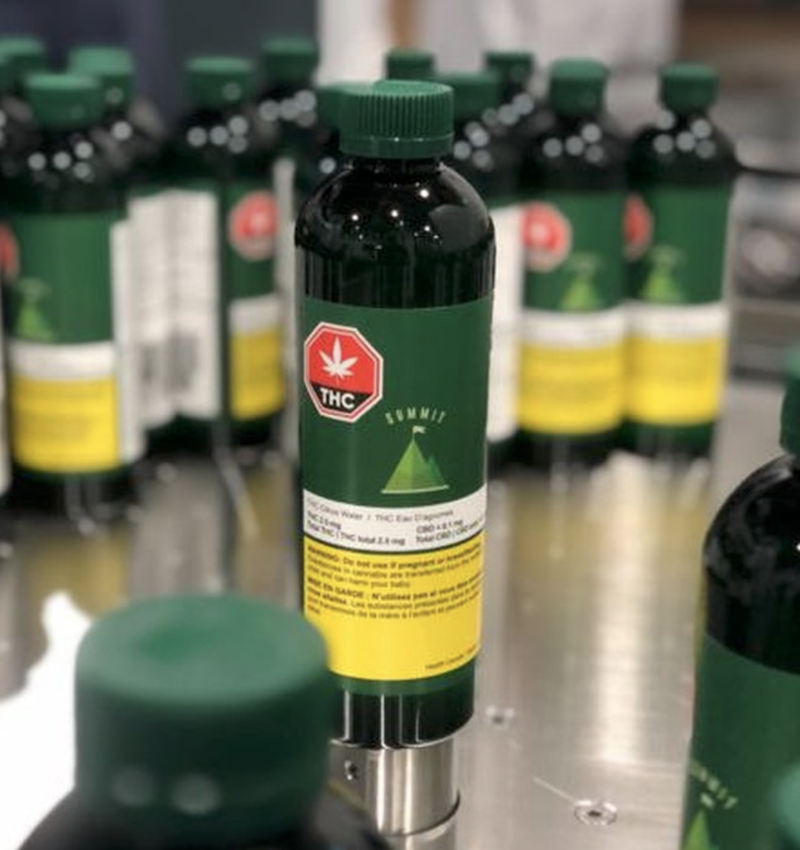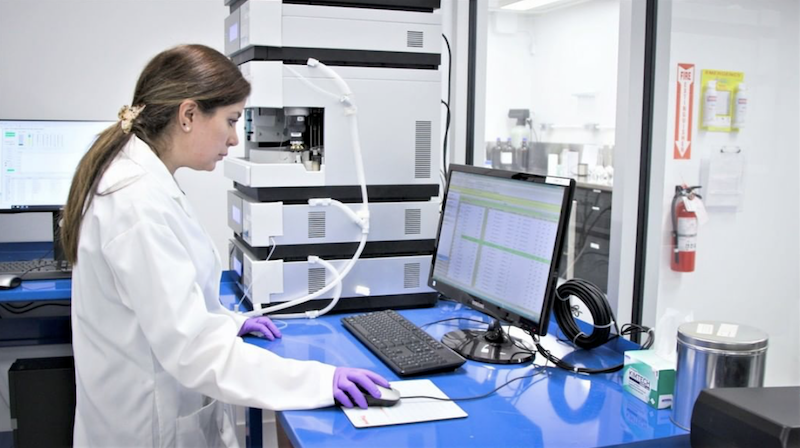Features
Q&A with Valens CEO Tyler Robson
Published on July 2, 2020 by David Wylie
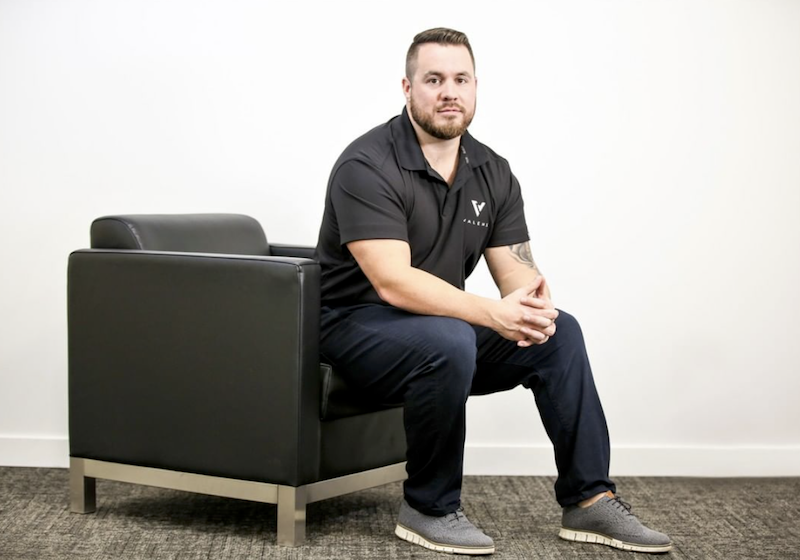
One of the biggest players in the cannabis world right now is The Valens Company.
Soon you’ll be seeing more and more of their drinks, vapes, topicals and potent concentrates – though you may not know they’re made by the Kelowna, B.C., company.
Valens is producing an array of white label products for a number of different companies.
In a wide-ranging phone interview with the oz., CEO Tyler Robson talked about his past, the company’s present and cannabis’ future.
the oz. – I hear that you’re from Thunder Bay, Ont.
Robson – I was born in Thunder Bay. Believe it or not, my family came to Kelowna, B.C., for a vacation back in the day and they never left. My parents sold the house without even going back.
the oz. – You were a football player before cannabis?
Robson – I wasn’t actually a football player before this; it was during. Long story short, I got involved a very long time ago in the old licensing called the MMAR/MMPR with Health Canada. I knew about the cannabis space and I’d grown up around it. That’s when I figured I needed to go to university if I really wanted to make something of it. I accepted a football scholarship to the University of Saskatchewan and I graduated with sciences and honours after five years. I had a very, very short stint in the CFL – didn’t really get to play but was lucky enough to go through training camp and be on a roster. I made my way back to Kelowna to be one of the founders of Valens. Seeing the global landslide of how cannabis was shaping up and really having the academic background of what pharmaceuticals were, how chemistry actually works, we wanted to bypass cultivation as a whole and really just get into derivatives and different types of extraction.
Our whole logic is when you really look at medical cannabis, what’s medical about smoking a flower and inhaling a product that’s inconsistent? We really need to make it like a medical product where it’s replicated whether it’s product one or a million, with concrete dosing and consistent dosing. That’s where extraction came into play.
the oz. – You grew for your dad, right?
Robson – Yep. It was pretty interesting at the time because very few people knew how to cultivate cannabis under the Health Canada regulations and how to even get through the paperwork, getting licences and being what’s called a designated grower. We did it for a few different medical patients with a few different medical ailments, and then eventually saw the writing on the wall of where the sector was going to go, so I jumped at the opportunity to go to university and educate myself.
the oz. – Can you talk a little bit about what the future of concentrates look like?
Robson – Concentrates are very user friendly and they own a significant market share. When you really look at concentrates, whether it’s a vape pen, all the way down to a beverage or a topical, people need different delivery systems and different products and people use cannabis for different reasons, so creating different options for them is a massive opportunity that a lot of people have overlooked.
the oz. – You’re making more potent concentrates, too, right?
Robson – Crumble is the first one we’ve successfully launched. Then we’re doing a wax, and then shatter. One thing about shatter a lot of people don’t realize is it’s not the most shelf stable depending on its environment. When it leaves our facility we really have no control whether it’s sitting in a truck in Kelowna in 40-degree heat or in Ontario at negative 10. We have to do a better job of maintaining that shelf stability before we launch a shatter.
the oz. – Those kinds of concentrate products are where the black market is really capitalizing right now. How can we start to move customers from the black market into the legal market with those kinds of products?
Robson – I think that’s a multi-levelled answer. One of them is price. We have to challenge some of these licensed producers in Canada to bring their price down because you can’t compete with the black market after you’re paying multiple taxes and multiple regulatory and quality assurance, and even testing, a lot of people in the black market don’t do any of that. We have to find a way to bring a cost effective product to market.
Part of it too is experience. A lot of people in the licensed-producer space right now don’t have a ton of experience with hydrocarbon. A lot of it is IP and trade secrets that the black market has built over years of trial and error. You really need to take what they learned and try to replicate it in a legal framework.
I think it will just take time, but it’s inevitable of where we have to get.
the oz. – Being from Thunder Bay, Ont., with the Pommies acquisition, what’s it like having an Ontario connection back?
Robson – It’s good and bad. It’s one of those things that logistically it made sense; we had to do it. When you look logistically at shipping beverages throughout Canada – Ontario being the biggest market – it’s extremely expensive. When you’re looking at long-term sustainability, we needed to have a footprint in Ontario, being the biggest market. Ideally, I don’t think we would have done it, but if it makes money it makes sense… It adds levels of logistics and supply chains, but I believe we have the right team to make it fundamentally sound.
the oz. – You’re moving forward with vapes from BRNT called Made By. Are they in stores yet?
Robson – It’s in motion. We’ve successfully shipped to B.C., Alberta and Ontario. We’re essentially just waiting for the retailers to list them. BRNT is one of our partners, so it’s BRNT by Valens. We’re doing a joint collaboration. They’re doing the marketing and sales. We did the formulation and product development.
the oz. – How many partnerships like that do you have?
Robson – We’re doing about four or five per category. We obviously don’t want to overwhelm the sector in vape pens or strictly beverages. We’re diversifying our product offering and we’re picking a select few in each category to really work with and double-down on. You’ll see some topicals. You’ll see more beverages, vape pens, concentrates.
the oz. – Valens is using SōRSE Technology in its drinks. Can you talk a little bit about what makes that special?
Robson – I truly believe that’s an absolute gamechanger and people don’t understand it yet. You can basically create a beverage that replicates alcohol, where you know exactly the user experience that’s coming. I think it’s more enjoyable than alcohol. Not only that, it has less caloric intake so you can actually have more with zero hangover, as well.
the oz. – I’ve got the Deep Space drinks coming. I’m a little bit leery because people say it tastes like cough medicine.
Robson – I think people need to try multiple beverages before they can really find one they like, and really creating consistency with the brand is a big one that will win people over.
the oz. – The houseplant drink is really awesome.
Robson – I’ve tried that one, too. That one’s one of my favourite beverages in the space – other than ours. We’ve only done Basecamp and Summit to date. But we have a full lineup of beverage coming that we’ve tested in the U.S. and Washington. We’ve created the formulations, the delivery systems and really just the experience with different dosages and different flavour profiles. We’re excited to get those in Canada.
the oz. – What’s the ride been like building a company from scratch?
Robson – Busy to say the least. Canada being the first country to go federally legal, I’d say that’s probably the high because we’re essentially paving the way for the global platform. Some of the lows are the regulatory challenges of banging your head against the wall because Health Canada is kind of making up regulations. We tried to jump the gun a few times and tried to get ahead of the curve, which they changed it on us. There’s been a few mistakes early on that we made, but nothing that we couldn’t fix and correct and move forward.
the oz. – What has Canada done really successfully and what’s something that Canada could do well in the future that could make the atmosphere more successful?
Robson – I think everyone’s pretty quick to knock Health Canada, but at the end of the day, they’re learning too, like we are, and they’re putting their best foot forward. We’re taking essentially an illicit product and taking it to a legal framework and then deeming it essential business. They’ve had a long path as well.
Some of the rules changing overnight I think are some of the challenges.
Marketing is really hindering people because we’re trying to tap into the black market and really take away that market share but we can’t market anything. I think that’s one of the biggest challenges.
One of the biggest positives is they implemented a federally legal system in a short number of years which is challenging regardless of what you’re doing. Creating a federal system that works and getting medical patients products, but not only that, recreational people products in their hands as well. I think they’ve done a great job in rolling it out. It’s probably gone a little slower than what we expected.
the oz. – With the current regulations, in some cases you can’t even get a six-pack of cannabis drinks because of the weird cannabis equivalency laws. Will that change?
Robson – I think the goal would eventually be where you could order a case if you’re going camping or going away for the weekend… but I think that’s still a little ways away. Health Canada is still regulating it and still seeing really what the consumers want and the last thing they want to do is have people bite off more than they can chew too early. I would think those will relax in time.
the oz. – If you could look into your crystal ball for a minute, what’s the future of cannabis?
Robson – Concentrates and derivatives are going to continue to dominate the market and I think less people are going to be interested in smoking a joint. Natural health products, health and wellness, are going to be massive. The pet industry is going to be a tremendous one once it opens up and we have a little more clarity on rules and regulations… I would continue to move further away from cultivating and more into end consumer products and health and wellness.
the oz. – As more countries legalize medically and recreationally, what’s Canada’s role in that?
Robson – Canada is setting the stage for other countries to take a good hard look at what we did right and also wrong. The majority of countries will have a medical platform at some point, and eventually some would move to recreational. But that’s going to be a lot slower than we’ll give it credit for. Valens is in a fantastic position to basically capitalize on those medical products in medical countries.
the oz. – Valens is one of the top cannabis companies in the world right now. How did you get to that position and how do you hand on to it?
Robson – A lot of people overlook fundamentals. Everybody got as big as they could as quick as they could and that’s the exact opposite of what we’ve done at Valens. For us it’s all about making sound business decisions, remaining focused on the fundamentals, and once you’ve perfected at the pilot scale, then you expand.
the oz. – Is there anything you want to add?
Robson – Valens is much more than an extraction company. It’s essentially a one-stop shop for anything in cannabis, whether it’s analytical testing, product development, distribution, or manufacturing.
All photos from The Valens Company Instagram and Twitter
Be the first to know
Our newsletter subscribers are the first to read many of the best features on the oz. Stay ahead of the cannabis game.
Leave a comment on our Facebook page.
© Copyright 2020 Okanagan Z. | About the oz.
Report a Typo or Inaccuracy
We strive to avoid typos and inaccuracies. However, on occasion we make mistakes. We value your contributions and help in correcting them.
